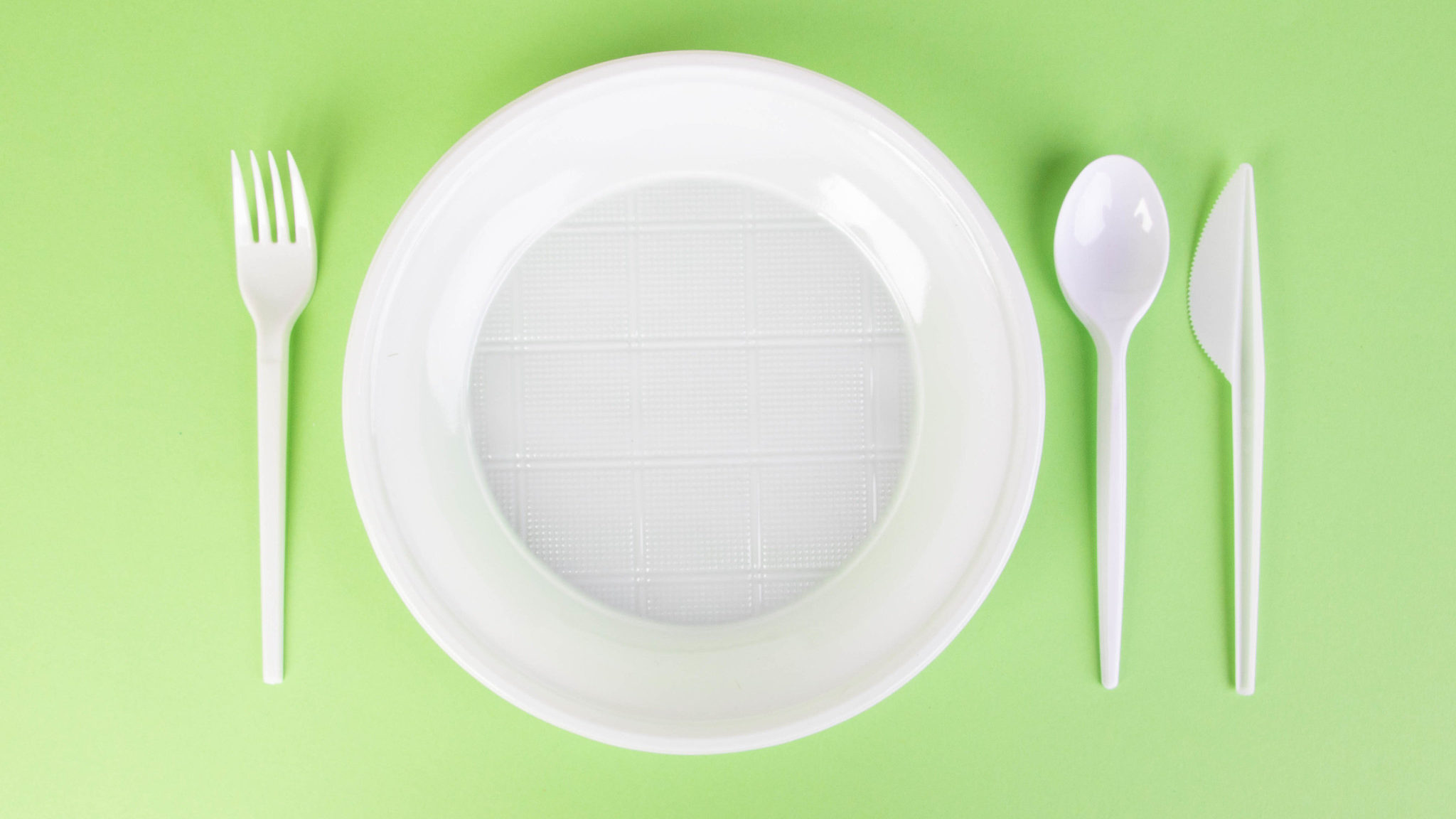Disposable Dishes, Sugary Drinks De-Taxed as Israel’s Ultra-Orthodox Regain Political Power
Religious parties viewed the taxes that were canceled this week as a political attack by the previous secular government, even though research shows it worked, drastically reducing consumption of the harmful items
In one of its first moves, Israel’s new government on Sunday announced its intention to swiftly cancel taxes on disposable goods and sweet drinks, just days after being sworn in.
The taxes were imposed by the previous government at the end of 2021. For the previous government and those who supported the taxes, there were many motives.
Israel’s Finance Minister Bezalel Smotrich promised to cancel them even before he entered office.
“These taxes are delusional,” he told the Kan 11 public broadcaster during the campaign. “It was clear already when it was decided that the world was heading to inflation … this was a terrible mistake. The government shouldn’t be part of raising the cost of living.”
At the time, the move was immediately met with a wave of criticism, especially from the Haredim, or ultra-Orthodox Jews who felt they were being targeted. In the negotiations leading up to the formation of the new government last week, the cancellation of the taxes was brought up by the ultra-Orthodox parties as part of their demands.
The political context in which the tax was decided upon is critical in order to understand the uproar within the Haredi community, despite the benefits known to be derived from reducing the use of plastics and consumption of sugar-loaded beverages.
The tax was announced by former Finance Minister Avigdor Liberman, who has made many headlines during his political career by attacking ultra-Orthodox Jews. Liberman is considered to be an arch-enemy of the Haredi community. In a widely condemned interview during one election campaign, Liberman said he aimed to put Haredim on wheelbarrows “straight to the dumpster.”
Sweet drinks are part of the daily diet of many ultra-Orthodox families.

Professor Nadav Davidovitch, head of Ben-Gurion University’s School of Public Health and Health Policy Program chair at the Taub Center for Social Policy Studies. (Dani Michels/Ben-Gurion University)
According to Nadav Davidovitch, head of Ben-Gurion University of the Negev’s School of Public Health and Health Policy Program chair at the Taub Center for Social Policy Studies in Israel, the tax was formulated long before Liberman entered office, when the health minister was Yakov Litzman, a Haredi Jew.
But timing is everything and it was under Liberman’s watch that the policy was implemented.
“This was not a tax against Haredi Jews, rather in their favor,” said Davidovitch. “There might have been a mistake in how it was explained to the Haredi public. It also should have been part of a wider move that includes reducing the price of healthier foods.”
Davidovitch said Haredi Jews have a greater chance of developing diabetes and being hospitalized due to complications from diabetes than other sectors of the population.

Miri Forst, founder of “Beguf Bari – In a Healthy Body.” (Courtesy)
“Many Haredi Jews are less aware of health issues,” said Miri Forst, an ultra-Orthodox woman and founder of “Beguf Bari – In a Healthy Body,” a women’s running program. “Now they are being told by their politicians to drink as if there is no tomorrow, just because they were supposedly screwed by the previous government. It is replacing one wrong with another one.”
“They are harming the very population they are supposed to protect,” she lamented.
Money earned from the tax could have been used to subsidize healthier alternatives, rather than just increasing government revenue. For Haredi Jews, who felt persecuted by the secular government, it was proof of their fears.
“Cancelling the tax is a grave mistake,” Davidovitch added. “It is shameful that it has become an irrational political battle in which people adopt political positions regardless of whether they see the benefit of such moves.”

Limor Gorelik, plastic pollution prevention manager at Zalul, Israeli environmental organization. (Courtesy)
“When we proposed this law as one of the ways to eradicate the use of disposable goods, we never thought it would become a heated political, sectorial, divisive debate,” said Limor Gorelik, plastic pollution prevention manager at Zalul, an Israeli environmental organization.
Haredi Jews make up about 13% of Israel’s population of over 9 million people. Their political representation in the current government gives them power to reverse what they see as negative decrees that targeted them.
“Everyone understands the need to promote public health and protect the environment,” said Uri Bloy, an expert on Haredi society. “But the previous government made it a point to harm the Haredi Jews in various ways. The Haredim don’t have a problem with the taxes, but they understood it as part of the war against them.”
Forst said that there was “no real issue with the tax itself, only because it was perceived as done against the Haredi Jews.”
“It is just nasty politics without consideration of the public,” she added.
According to the Knesset Research and Information Center, in 2020 Israelis consumed more than five times the amount of disposable plastic items as the average European citizen. Over 11 billion disposable plastic items were purchased that year. While data shows the overwhelming majority of Israelis use such goods, for Haredi Jews, the tax became a symbol of their struggle against the government. Ultra-Orthodox Jews use three times more disposable goods than their proportion in the population.
Haredi Jews come from large families, with an average of six children per family. Many of them are poor and live in small apartments, and they do not own dishwashers. Disposable goods provide an easy solution to large family meals, especially on the Jewish Sabbath and holidays when labor such as washing dishes is prohibited under many conditions.
“The tax on disposable goods is particularly harmful to the poorer families,” Bloy explained. He believes the Haredi population continued to buy disposable dishes despite the tax.
“Regressive taxes on consumption usually harm the weaker parts of society,” said Edna Harel Fisher, a research fellow at the Israel Democracy Institute. “What we saw here was a reflection of the distrust the Haredi population had in the management and policy of the previous government, especially in areas in which there was an attempt to impact public health and environment by trying to change people’s behavior.”
Stringent dietary standards that are upheld by religious Jews also motivate them to use disposable goods. For example, the laws of keeping kosher that call for the separation of meat and dairy products require separate sets of dishes and can be challenging when catering to large families.

Uri Bloy. (Screenshot)
“The need didn’t go away and because it was a politically motivated move, people took into consideration even less,” Bloy told The Media Line.
However, according to data from Zalul, there has been a drastic reduction in the consumption of disposable goods since the law came into effect. The data, compiled by Zalul and StoreNext Market Performance and Research, shows that there was over 30% less consumption after the tax was levied.
“The tax worked,” said Gorelik. “We also saw almost 90% less plastic bottles and 20% less disposable dishes being discarded at our beaches. The numbers speak for themselves.”
“The goal now is to cancel everything the previous government did and then re-examine everything,” said Bloy. “There will be an effort to promote these issues, but instead of diverting resources to taxation, there will be better education and prevention.
“I can understand why the Haredi population was against taxation on disposable goods, but not on the sugary drinks,” said Forst. “This harms our children directly and immediately.”
It is easy to see how the issues have become contentious.
“We are extremely upset by this cancellation,” said Gorelik. “We are harming our health with our very own hands. It is simply outrageous.” She says that Zalul intends to fight the cancellation of the tax.
There is no data yet on how much revenue the taxes generated. Initial data from various sources show conflicting numbers on both the purchase of disposable goods and soft drinks.
“It is a shame that such an issue has become politicized instead of all parts of the population mobilizing to find solutions that will suit everyone,” said Harel Fisher, who suggests considering incentives in order to encourage people to change their habits.
To finalize the annulment of the taxes, the Finance Committee of Israel’s parliament, the Knesset, must approve the move.


